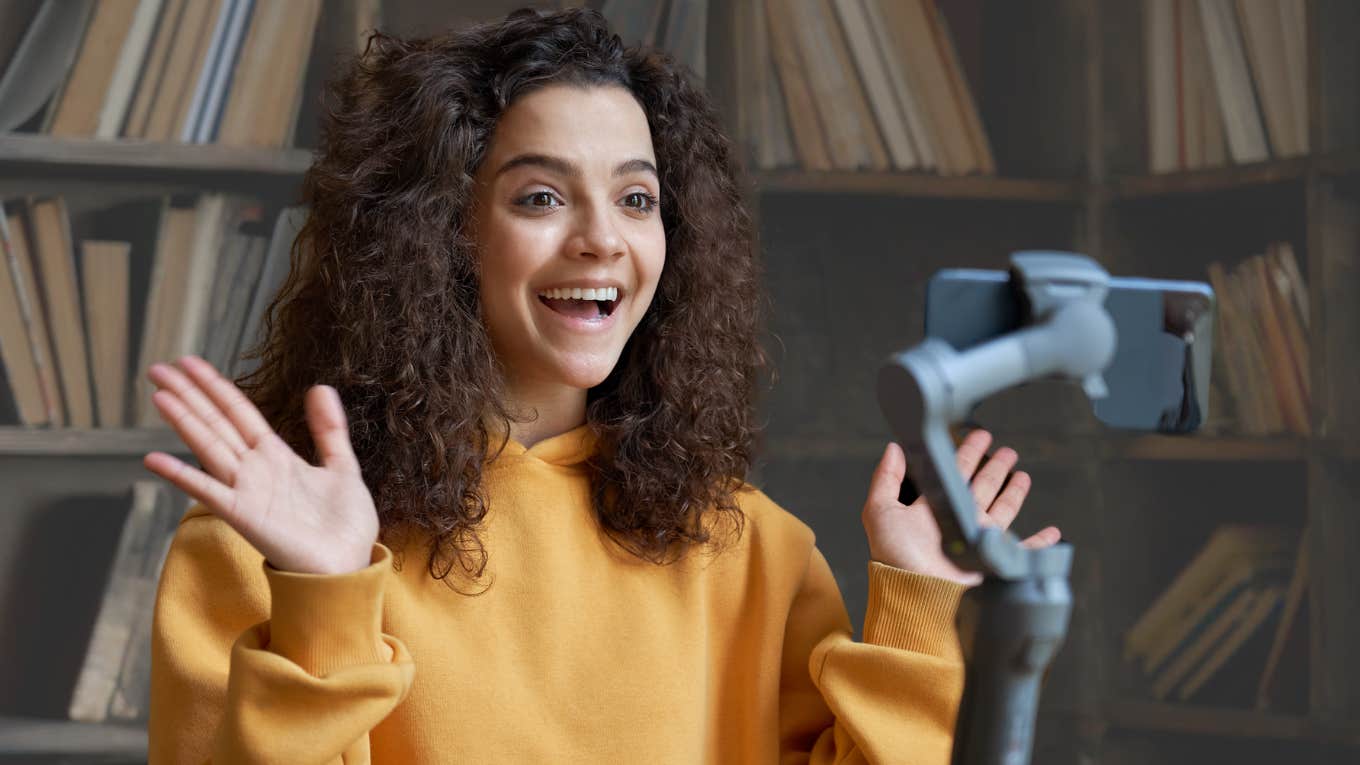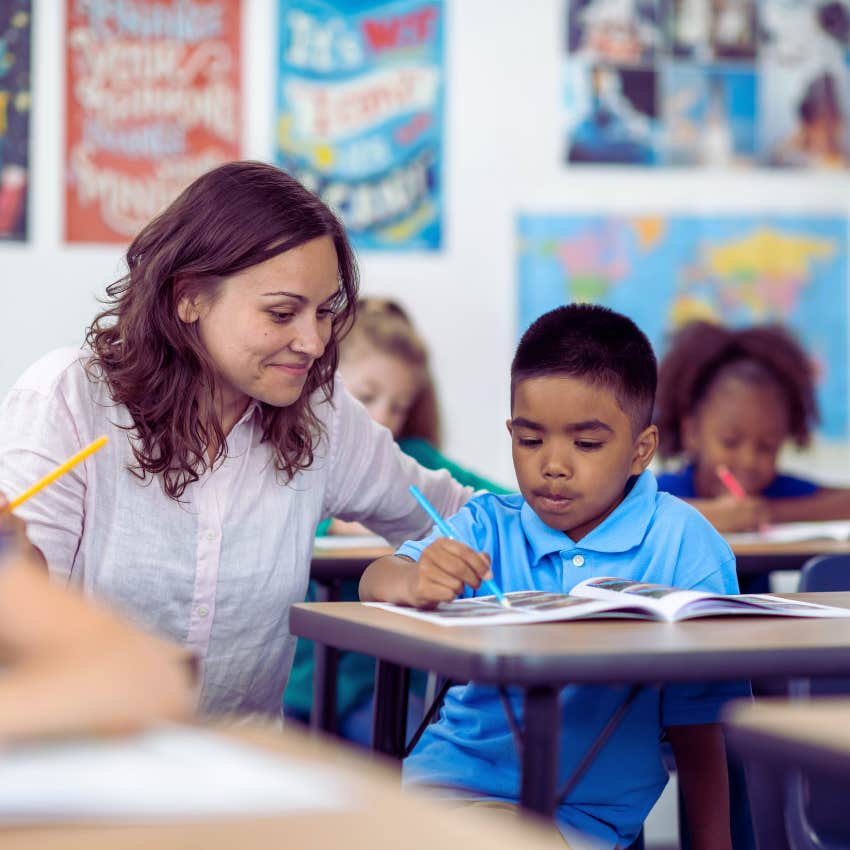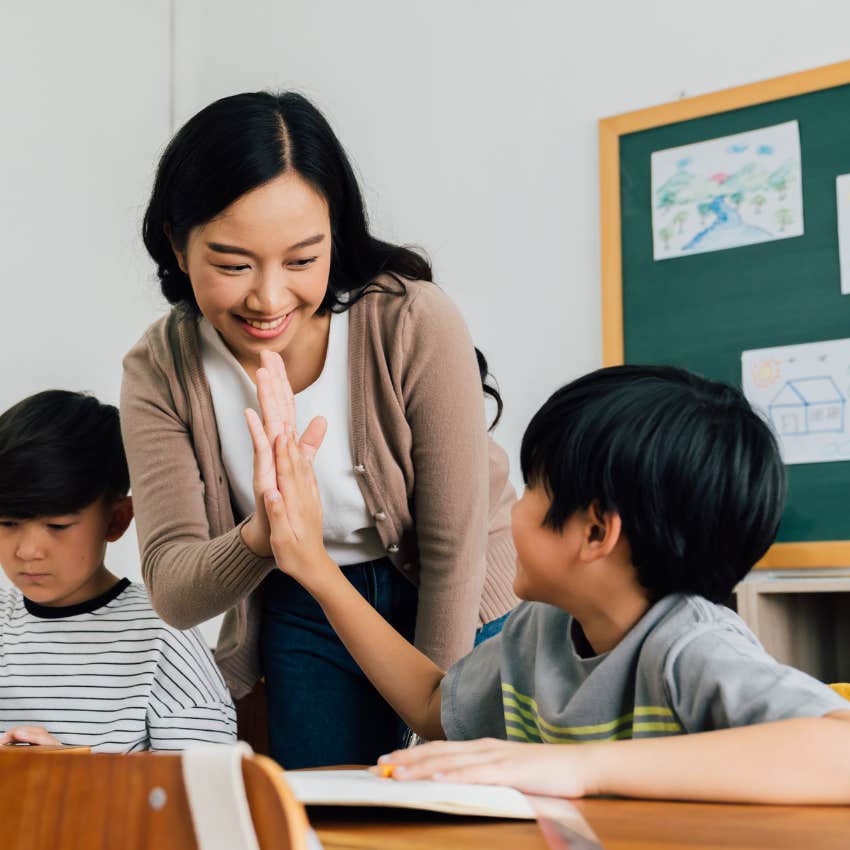Mom Demands Teachers Disclose Any Public Social Media Accounts — ‘Parents Should Be Allowed To See What Teachers Are Saying About Our Students’
Should certain professions be prohibited from social media use?
 Ground Picture / Shutterstock.com
Ground Picture / Shutterstock.com Should parents be able to monitor their children's teacher’s social media pages? Do teachers need to disclose any kind of public social content they produce?
Mom Julie Skolnik, has strong feelings about it, arguing that it’s essential teachers disclose all their public accounts to both parents and administrators. “This is a PSA to any parents with kids in public school. We need to find out if our children’s teachers have a public social media account and are posting videos.”
Skolnik said teachers should have to ‘disclose’ their public social media accounts to parents and administrators.
“Remember that public school teachers are government employees,” Skolnik said. You can go, right now, on a website and type in the name of your child’s teacher. It will give you all kinds of information — their certifications, years they’ve been teaching, their salary … I think they should also have to disclose if they have public social media accounts.”
From posting classroom skits to spreading support for other educational professionals, “Teacher TikTok” has grown immensely in popularity — with creators like @Mr.McTikTok (known in the classroom as Kevin McClintock) and @kristen.guarino paving the way. However, they’ve come under fire by a great deal of parents and administrators.
Being government employees, there are certain regulations and rules teachers have to follow — but at what point does that boundary go too far? How much are teachers allowed to share online about their jobs — and when does a privacy line get crossed when parents are demanding access to other, more personal, parts of their lives?
Skolnik said that some teachers are ‘talking crap’ about students on public social media accounts and parents are ‘entitled’ to know about it.
Skolnik argued that not only should districts force teachers to disclose public social media accounts where they’re talking about teaching, students, or educational information but they should also be required to disclose public accounts that are personal or “are not being posted” on.
“Parents should be able to go to the district and ask for their student’s teacher’s public social media handles and what platforms they’re on,” she said. “Parents should be able to see what our teachers are saying about [them] ... As public employees, teachers should have to share that information.”
While many parent commenters agreed, arguing that videos with children’s faces or personal information would be “inappropriate” and harmful, others, including many teachers, deemed it a complete violation of privacy. “My school already has a social media section of our contract that we follow,” one teacher wrote. “As long as I protect my students from public videos, there’s no reason why a parent needs to follow my personal accounts.”
Teachers like @angrygymteacher on TikTok, who makes both teaching & more personal content on his platform, argues that this demand is ridiculous — “I think parents should also be allowed to put cameras in those public school teacher’s homes, so we can see what they’re up to when they’re not at school,” he ironically adds.
Public posting on social media is highly debated by many teachers, but most argue it’s not a parent’s business unless the kids are shown on camera.
Despite the disappointment and frustration many people have shown in response to Skolnik’s initial video, it’s sparked a debate on both sides of the aisle. From teachers advocating for personal freedom online — with caveats for students’ safety — to parents who agree with Skolnik, and everyone else in between.
 FatCamera / Canva Pro
FatCamera / Canva Pro
When it comes down to it, it seems far fetched — even in our digital age — to force teachers to disclose personal accounts online for parents to “poke and prod” through. Even those who are already making public videos without kids, mentions of school, or their profession already feel a sense of job instability and fear over parents escalating their personal posts.
It’s the kind of caution that teachers like @mr.trayvon on TikTok empathize with, despite the precautions he takes when it comes to online etiquette and making a supplemental income on social media. Because, let’s be frank, many teachers use social media as a second income to their teaching job which often undercompensates them.
“Social media is gonna be the downfall for many teachers out there,” he said. “I’m sure you’re all aware of the teacher who let his students take his braids out. I’m not specifically talking to that teacher, but I am talking to the masses … there can be liability issues and student privacy issues.”
Even for teachers that aren’t posting their students’ faces directly on camera, he reminded them that it’s important they take other precautions including hiding logos from their school, other teachers, students’ voices, or even the name of the school they work at. All of which ensure that their educational and personal content is protected from liability concerns.
 Twinsterphoto / Shutterstock.com
Twinsterphoto / Shutterstock.com
“It’s important to protect yourself, but also your students,” he said “You never know what’s going on in the life of a student."
At the end of the day, teachers are entitled to a sense of privacy outside of work — just like any other professional — but there are certain safeguards they should follow. Whether their district has a “social media policy” or not, it’s essential to protect vulnerable individuals and keep everyone’s best interest at heart.
Zayda Slabbekoorn is a News & Entertainment Writer at YourTango who focuses on health & wellness, social policy, and human interest stories.

